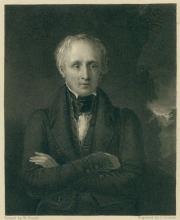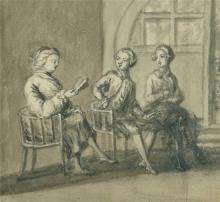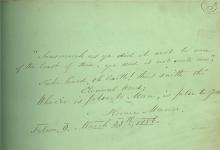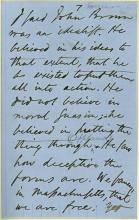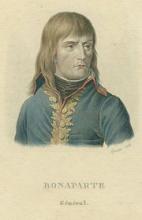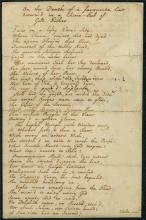Happy Birthday, William Wordsworth!
Submitted by Carolyn Vega on Thu, 04/07/2011 - 12:38pmToday marks the 241st anniversary of William Wordsworth’s birth. He was a founder of the so-called Lake School of poetry, and I have a mental image of Wordsworth wandering “lonely as a cloud” through the mountainous Lake District, penning his lines in the very settings he describes. He has been called “our greatest nature poet,” and was a master of the walking tour – Thomas de Quincey estimated that he “must have traversed a distance of 175 to 180,000 English miles.”

